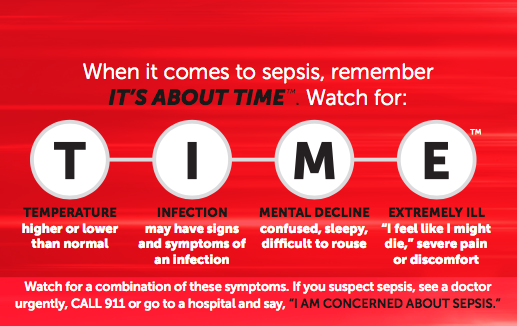October is National Dental Hygiene Month: Partners in Preventing Sepsis
September 30, 2019
Dental care and medical care have always existed separately in North America. Despite dentists being doctors of oral health, care of the mouth is not considered to be a medical specialty as is care of the bones (orthopedics), the skin (dermatology) or the nervous system (neurology). It is a separate thing altogether, with little communication between dentists and physicians. Unfortunately, for many people, this way of thinking can be short-sighted because the health of your mouth can have a significant impact on your overall health. The many people who developed sepsis from a dental infection can tell you this.
More people than ever before are going to emergency rooms with abscesses and infections in their teeth. If the infection is not treated quickly or it has become severe, it can trigger the onset of sepsis. One study published in the Journal of Endodontics in 2013 found that during an 8-year period ending in 2008, there were 61,439 hospitalizations in the United States due to periapical abscesses, a collection of pus at the root of a tooth. The number of people per year who had to be admitted to a hospital because of these dental abscesses rose by more than 40%, from 5,757 in 2000 to 8,141 in 2008.
October is National Dental Hygiene Month. Dental hygienists are the front-line professionals when it comes to dental health. They work closely with dentists but they do more than just clean your teeth. They examine your teeth and mouth for signs of injury or disease, such as gingivitis. Dental hygienists are also teachers, as they help children and adults learn how to clean their teeth effectively.
Caring for your mouth and teeth is an essential part of good health habits. Identifying illnesses or infections early can help prevent complications, like sepsis. This October, if you’ve not seen a dental hygienist lately, consider making an appointment to have your teeth cleaned and examined. Tell your hygienist if you’ve been having problems with your mouth and see what you can do together to help improve your dental and oral care.
If you do have an infection or injury in your mouth, watch for signs and symptoms of sepsis. It could save your life.

To learn more about sepsis and its relationship with your mouth, visit Sepsis and Dental Health, part of the Sepsis and… library.





























